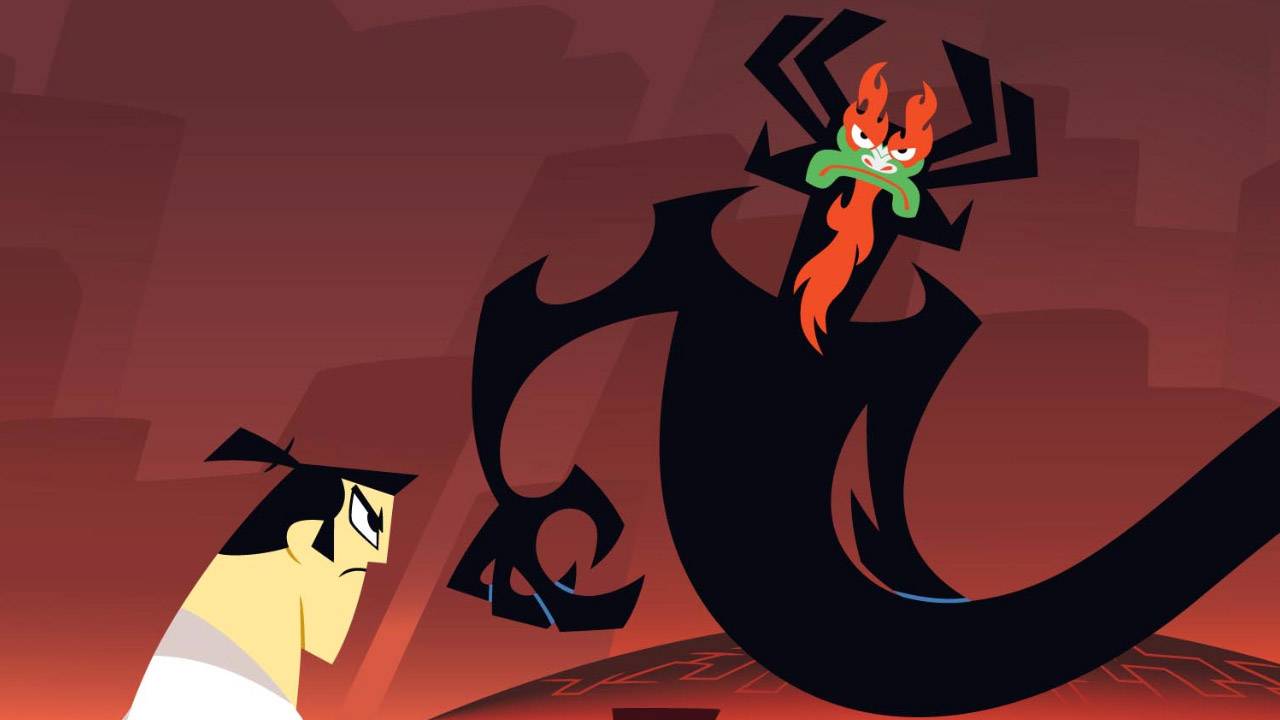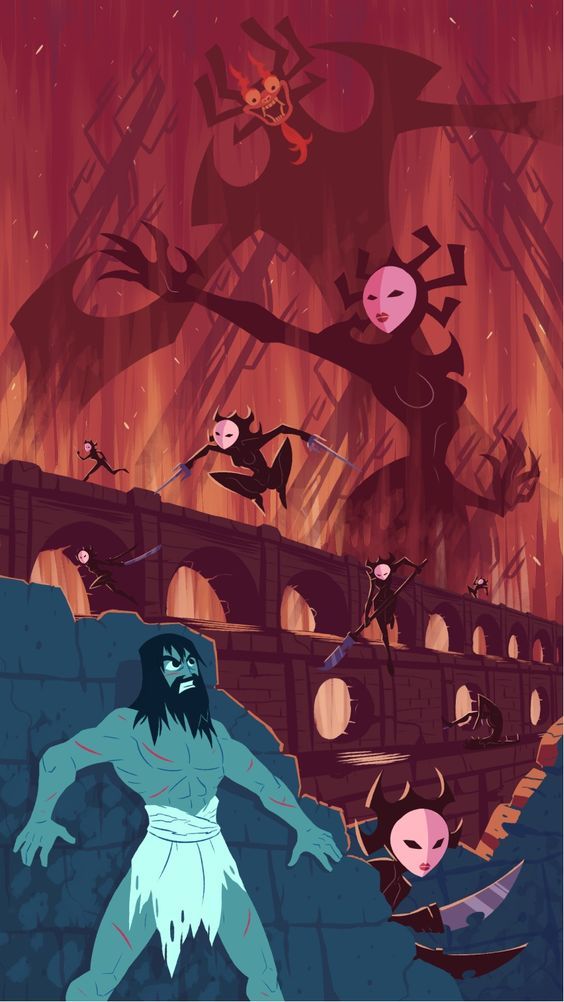

#Samurai jack themes series#
It took me until the fifth season this year to recognize what about the series has resonated with me so deeply. We’d beatbox its theme song and take on the exaggerated voices of whatever monster Jack was locked into battle with that week. My younger brother and I would sit in rapt attention in front of the small television in our den to watch the series. I was 12 years old when Samurai Jack premiered on Cartoon Network. Whatever it is, there’s something there that will blow you away.” But what makes Samurai Jack a stunning piece of art that deserves to be discussed in league with TV’s great live-action, scripted giants is how its visual and sonic landscapes work to create an intimate, even brutal portrait of one of the most human experiences: loneliness. Grown-ups, kids, old people, babies - you respond to the colors, to the action, to the epic mythological underpinnings. This flexibility is perhaps why voice actor Phil LaMarr said in an interview with the AV Club about the series, “it’s one of the few things I’ve been a part of that I feel pretty confident I can sit anybody down in front of it, and they will find something to enjoy about it. It moves between moods and genres with such impressive swiftness the series becomes its own strange beast. It is suffused with the energy and scope of classic epics like Lawrence of Arabia. Samurai Jack echoes Frank Miller at his most stark, Akira Kurosawa at his most poetic. Coyote zaniness, and visual humor that wouldn’t be out of place in Raiders of the Lost Ark.

In its sharply constructed episodes that clock around 22 minutes, you’ll find the glint of Blade Runner’s cyberpunk dystopia, the earthy sensuality of Gene Kelly, a glimmer of Wile E. Samurai Jack may be spare on plot, but it brims with emotional complexity and visual splendor. Jack has not aged, but the toil of his journey has led him to slip into hopeless despair and madness. The fifth season picks up 50 years later. In its final, ten-episode season, the show definitively concludes the long, weird, oft-touching journey of its hero. Samurai Jack was unfortunately canceled in its fourth season before its titular character could find a way back to his own time and finally defeat Aku. The warrior-prince - who adopts the moniker of Samurai Jack, although his given name is never said - finds himself without a home or companion, a stranger in a strange land. Earth is now a strange dystopia in which aliens, monsters, common folk, and madmen alike struggle to survive under the harsh tyranny of Aku. Before he’s able to land the final blow with his magical sword, Aku rips a portal through time and flings the young prince hundreds of years into the future. Samurai Jack follows a young prince (voiced by Phil LaMarr) in feudal Japan trained to finally destroy the shape-shifting, sorcerer-demon Aku (the late Mako Iwamatsu for the first four seasons, Greg Baldwin in the fifth season) that his father could only entrap.

They’re from Samurai Jack, the animated series created by Genndy Tartakovsky that premiered in 2001, ran for four seasons, and was revived for a fifth and final season that ended this past weekend.
#Samurai jack themes tv#
These moments aren’t from a prestige TV series with A-list talent or a long-lost Akira Kurosawa film. The only sounds are chirping crickets and the fire that crackles before him - until a vision of his long-deceased father rips through the tranquility, admonishing him for his failure. Here he is again, alone, in a dense forest. This samurai travels through lands of the mythic and mundane, the natural and the supernatural.

A lone samurai clad in white stares up in horrified awe at a gargantuan future city, constructed with neon bright colors, clashing machinery, and aliens speaking in a tongue foreign to his ear.


 0 kommentar(er)
0 kommentar(er)
